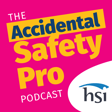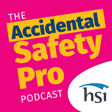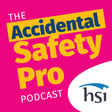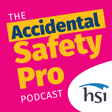
123: Salary and Safety Budgets with a City Safety Manager
Many find OSHA inspectors to be intimidating, but this week's guest credits them for inspiring his true passion. Jill chats with Randy Milliron, safety manager for the city of Gillette, Wyoming, about starting his career in quality control before moving into a safety role. He talks about receiving mentorship from OSHA inspectors early on (to which he credits his success and longevity) and discusses the new types of challenges he faced when he joined the government sector, including salary negotiations and the daunting task of managing a tight budget. Plus, tune in to get a sneak peek into the book Randy is writing about his insights after 27 years in the safety industry. Enjoy this early dropped episode while traveling during the holiday week. Wishing all of our listeners a safe and happy holiday!



